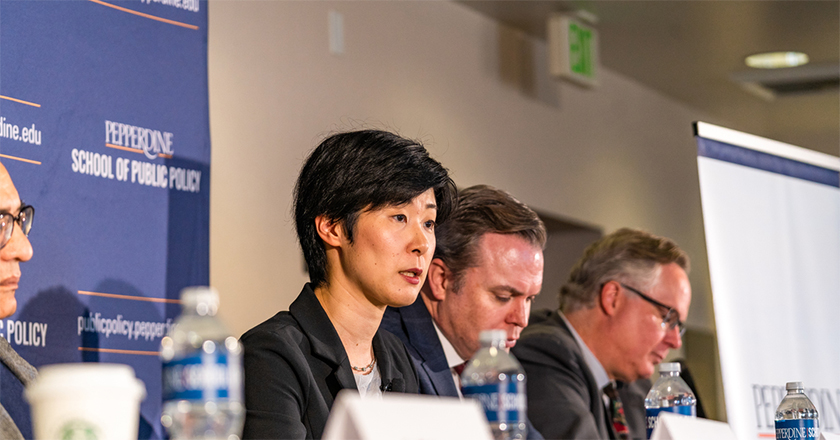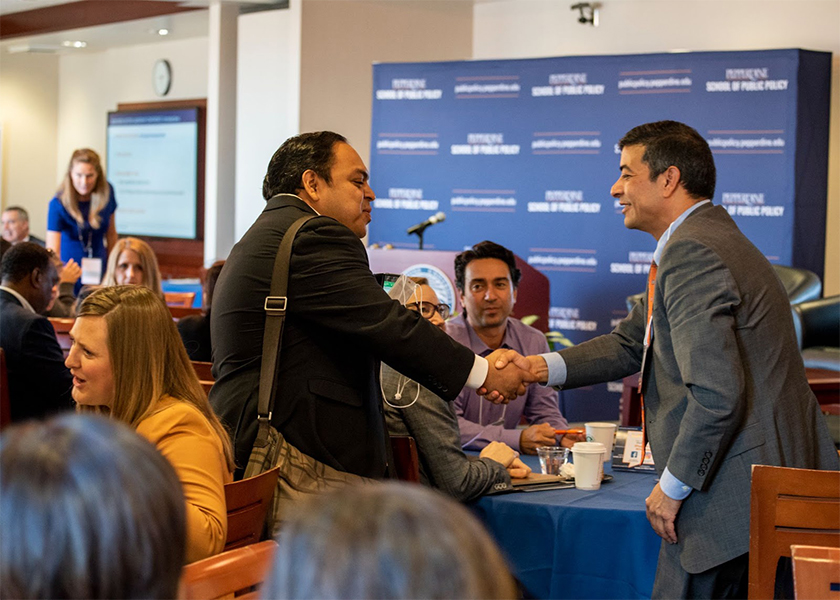
Communities transform rapidly, driven by inventive breakthroughs, global developments, and societies' evolving needs. Public policy sits at the intersection of these changes, striving to comprehend, foresee, and steer the course of advancement. As students and professionals explore the intricate world of policy-making, they are met with the realization that public policy change is not only a desired goal but an essential necessity for our society.

At its core, public policy change is the intentional adaptation, amendment, or creation of policies to reflect our continuously evolving society. To accomplish significant public policy change, one must have a thorough knowledge of the values and norms of society. Rather than viewing a policy problem from a single perspective, a field-expert must evaluate every side that frames the issue.
Here are a few of the important aspects to be aware of when evaluating policy.
Dynamic Response to Societal Contexts: Society is never static. The demands, beliefs, and behaviors of the people evolve as our economies expand, cultures shift, and technology advances exponentially. Public policy change actively acknowledges this fluidity and takes a dynamic approach by adapting to ensure governmental law is relevant and effective for our society.
Proactive Versus Reactive Approaches: Public policy change is not merely about responding to present challenges but also anticipating future ones. Looking ahead towards public policy solutions requires a knowledge rooted in classic literature of history, philosophy, and economics to understand how to create policies that are ready to meet future challenges head on.
Evidence-Based Decision Making: For policy changes to resonate and serve the people, they must be built on solid evidence. Extensive research, reliable and relevant data, and accurate evaluations are needed to make informed choices.
Engagement and Participation: It is critical that everyone has a voice in policy-making, whether it is everyday citizens or industry experts. By ensuring a collective voice in the decision-making process, policies become a collaborative effort rather than a directive from the top, making them more aligned with the needs of those directly impacted.
Ethical Considerations: It is vital that public policy solutions are developed with moral and ethical principles at the foundation. They should strive to champion American founding principles of justice and protection of the people.This includes ensuring that policy changes do not inadvertently marginalize certain groups or create further inequalities.
Knowing your Demographics: If policies in Chicago, Illinois worked the same for policies in rural Iowa, policy making need not exist. Therefore, the key to meaningful and effective policy actions are driven by a deep understanding of who the policy is for, the history and norms of those people, and the expectations of the remaining stakeholders.
Balancing Short-Term and Long-Term Needs: Although addressing urgent challenges is a driving aspect of public policy, it is important to maintain a balance between timely issues and laying the groundwork for long-term societal goals.
In essence, public policy change represents the heartbeat of a living, moving society. It's an ongoing dialogue between governance and the governed, ensuring that as times change, policies don't just keep pace, but often lead the way, crafting the path for a society's future trajectory.
Public policy is often seen as a reflection of the societal milieu. Various factors drive its evolution and by understanding these influences, one gains a clearer picture of why policies are altered, adopted, or abandoned.
Public Opinion and Social Movements: When people come together for a shared cause, their unified voice can move mountains in the realm of policy change. Public sentiments, amplified by media or through grassroots campaigns, can lead to shifts in political priorities.
Technological Innovations: As technology develops at an exponential rate, our policies also have to adapt and grow to meet these changes. Consider how the rise of the digital age introduced new guidelines around online privacy, our digital freedoms, and how we secure our cyberspace. Without public policies to address these developments our digital protection is not ensured.
Economic Shifts: Whether the economy is in a slump, booming, or just responding to global trade shifts, these financial waves heavily influence our policy choices. Policies may be adapted to stimulate economic growth, safeguard jobs, or protect domestic industries.
Political Leadership and Ideology: The beliefs and priorities of those in power significantly impact policy direction. A change in leadership, especially if accompanied by a shift in ideological beliefs, can lead to vast policy reforms.
Research and New Data: Empirical evidence can and should play a pivotal role in influencing policy. When new research highlights issues or offers novel solutions, it can serve as a catalyst for change.
Legal Mandates and Judicial Decisions: Court decisions and legal interpretations can lead to policy amendments. For example, landmark decisions on rights or interpretations of constitutional provisions can necessitate policy shifts.
International Influences: In our digitalized world, international events or decisions can sway domestic policies. This includes global treaties, international crises, or the policies adopted by influential nations.
Institutional Factors: The structure and processes within governmental institutions can either facilitate or hinder policy change. Bureaucratic processes, institutional checks and balances, or the interaction between different branches of government can all influence the pace and direction of policy adaptations.

In the policy landscape, stakeholders serve as both anchors and navigators. They bring perspectives, interests, and influences that shape the course of public policy, driving it towards transformation.
While not comprehensive, this list includes many stakeholders that you will interact with on some level if you pursue a career in policy making. Engaging with them, understanding their viewpoints, and fostering collaboration is vital for any policy to truly resonate with the needs and aspirations of society.
Education is the foundational backing for Public Policy. It not only shapes change but it ensures its effectiveness through exploration and analysis.
Let’s explore how education impacts policy transformation:
Informing Decisions: Policy-making decisions are rooted in expertise. Comprehensive, integrated educational foundations provide policy-makers with the necessary tools to critically analyze issues, evaluate potential solutions, and make well-informed decisions.
Creating Awareness: Education strengthens consciousness and recognition, giving the public the knowledge to push for change in policies directly impacting them and to participate in civic engagement. Through education, the public becomes more aware of pressing issues, thereby influencing policy direction through their voices, votes, and activism.
Training Future Leaders: Educational institutions play a vital role in shaping the minds and ideals of future policy-makers. Curriculums that focus on critical thinking, ethical considerations, a global perspective, and philosophy equips future leaders to handle the complexities of modern policy-making.
Research & Development: Universities and research institutions often act as the backbone of policy change by producing research that sheds light on issues, offers new insights, and proposes innovative solutions. Policymakers often turn to these academic findings to evidence their proposals with credible data.
Bridging Cultural Gaps: As our world grows more interconnected, it’s vital to embrace different cultures and viewpoints on a global scale. Education offers insights into the international landscape, helping policy-makers craft policies that are inclusive and effective.
Education can craft a society that's prepared to comprehend, interact with, and make an important impact on our world. As we navigate today's intricacies, the ability of education to steer and reshape policy cannot be overstated. It's vital for all of us, be it policymakers, educators, or everyday folks, to truly grasp and champion the influence of education in shaping our collective future.

Human Flourishing should be the primary goal of all policy, despite how technical and nuanced a policy may be. But actually achieving that goal can prove to be challenging. That’s why a Master of Public Policy (MPP) from Pepperdine University’s School of Public Policy is relevant. Students are equipped with a curriculum grounded in both policy analysis and an exceptional understanding of the historical and philosophical foundations that provide graduates with critical insights, setting them apart in the competitive arena of public policy to make a real change.